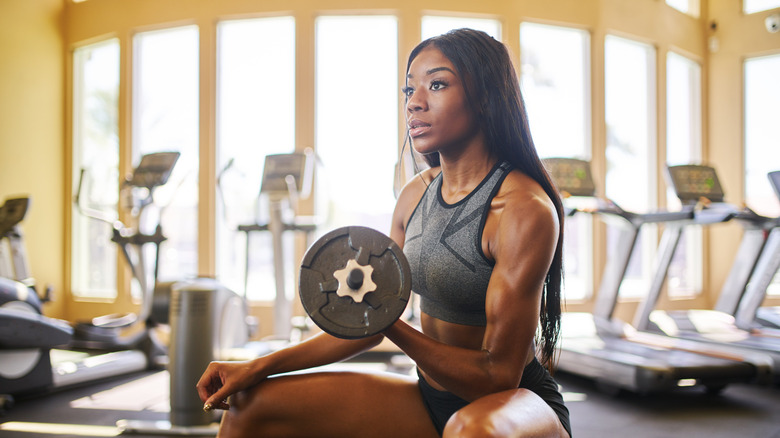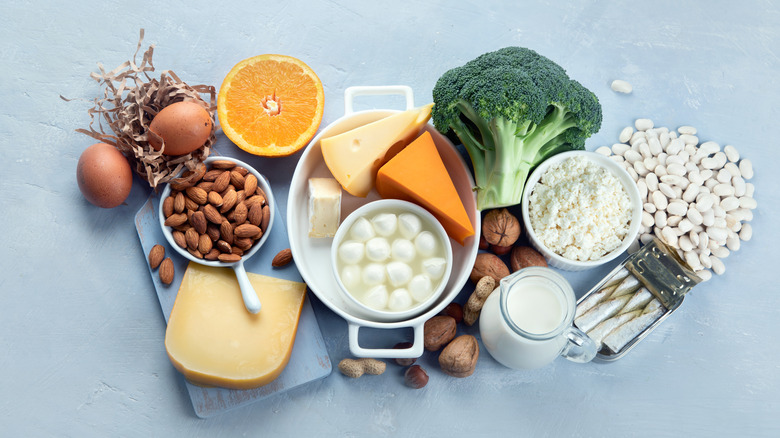Why Vitamin D Is Critical For Muscle Health
Vitamins and minerals are essential for our health. They provide a full scope of benefits that help us function at our best. Could vitamin D also improve muscle mass? The answer is yes! Evidence suggests that vitamin D has a significant effect on tissue and muscle strength.
As a nutrient we develop from sunlight, vitamin D is praised for its health benefits. When our skin absorbs the sun's rays, we synthesize vitamin D to support our immune system, bone, and brain health. According to MindBodyGreen, vitamin D receptors have been found within the muscles attached to our bones. To put it simply, our skeletal muscles are strengthened by vitamin D.
We see you eyeing that protein shake before your workout. Vitamin D may also be beneficial during strength training. U.S. News & World Report notes that adequate vitamin D intake has similar effects on the body as calcium. A 2015 study published in the journal Therapeutic Advances in Musculoskeletal Disease indicated that lacking vitamin D is linked to muscle weakness. In addition, experts found (especially in elderly people) that low vitamin D levels may increase the risk of falls.
Now that we've covered vitamin D's importance to muscle health, let us identify deficiency symptoms and natural remedies.
Natural ways to defy a deficiency
As we age, vitamin D becomes increasingly important. The National Institutes of Health suggests newborns throughout their first year get around 400 IU (international units) of vitamin D. From age one to age 70, 600 IU is ideal. For people over 70 years old, 800 IU is recommended.
In 2021, UT Health Houston reported that around 42% of Americans needed more of the "sunshine vitamin". Who exactly could be at risk? Great question. According to Healthline, people with darker skin, those who are indoors often, and people living in highly polluted areas are more susceptible.
Deficiency symptoms show up as muscle weakness, fatigue, muscle pains, and bone frailty. If you experience these symptoms, it may be your body asking you for more sun.
The best ways to boost your vitamin D intake are getting more sunlight, enjoying a balanced diet, and (if necessary) taking supplements. Foods like salmon, tuna, eggs, cheese, and yogurt all offer vitamin D. Experts at The Cleveland Clinic propose shopping for fortified foods like breakfast cereals and milk. Just be careful to avoid added sugar and saturated fats.
Vitamin D is an essential nutrient that boosts bone health and strengthens muscle. To ensure you're getting enough vitamin D, include whole and fortified foods in your everyday diet. Enjoy sunlight frequently — with sunscreen, of course! If you believe you may be deficient in vitamin D, speak with a health professional about vitamin D testing.


